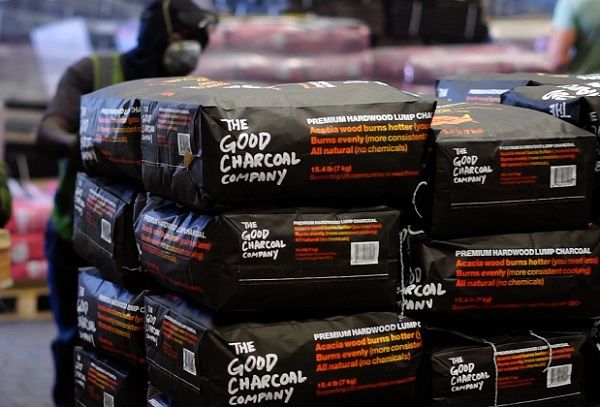
More Namibian charcoal exported to the U.S. following environmental certification

Africa Burns Charcoal Company has had the exports of their ‘green’ charcoal increased to a U.S. buyer named the Good Charcoal Company.
With the help of the United States Agency for International Development’s Southern Africa Trade and Investment Hub (USAID TradeHub) and the U.S. Embassy in Windhoek who has facilitated the sale of over 1000 metric tonnes of Namibian charcoal to Good Charcoal.
U.S. Embassy Public Affairs Officer and spokesperson, Walter Parrs said the Good Charcoal Company is now eagerly marketing the product to American customers fond of barbecues.
“The programme initially assisted Africa Burns to obtain the vital Forest Stewardship Council’s certification in June 2021, by cost-sharing with them, because acquiring this internationally recognized certification has added credibility to the charcoal’s standing, especially in export markets with environmentally conscious consumers,” added Parrs.
Parrs said the USAID TradeHub also supported Africa Burns Charcoal to understand better the U.S. market entry requirements and logistical hurdles, so they could export their charcoal to the United States duty-free under Normal Trade Relations. “The Good Charcoal Company on its part, is now partnering with local communities across the U.S. to support and sponsor free weekly barbecues, 20,000 free meals and counting, to people experiencing food insecurity in the U.S.,” emphasised Parrs.
The U.S. Embassy further stated that communities across Namibia grapple with the problem of acacia bush that encroaches the land. “African Burns Charcoal is addressing these issues through an environmentally and economically sustainable solution, rooting out the invasive acacia trees and converting it into charcoal,” they explained.
The Embassy said that this is why Africa Burns has won acclaim for this innovative approach. Its supply chain consists of hundreds of local small-scale suppliers who are transforming acacia wood into charcoal which, due to the COVID-19 pandemic and ongoing devastating drought, has become an economic lifeline to over 10,000 local charcoal producers.











































